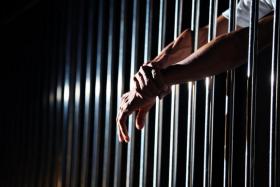Coroner suggests SCDF boost mental health support after NSF's suicide
After NSF's suicide, State Coroner suggests SCDF appoint mental health professionals to each camp, review protocols
The State Coroner has recommended that the Singapore Civil Defence Force (SCDF) undertake a review of its structure and protocols to better deal with mental health issues among its servicemen.
This includes appointing trained mental health professionals to each SCDF camp.
The recommendation came after a coroner's inquiry into the suicide of SCDF full-time national serviceman Muhammad Ahad Lone, 18.
He had shown signs of depression and had expressed to doctors his intention to inflict self-harm during his time with the SCDF. He was found dead at the foot of an apartment block at Pine Grove in Clementi in April last year. At the time, he was living alone in a rented room in Block 1A at Pine Grove.
He had been doing his national service in the SCDF since Feb 6 last year. After his enlistment, Ahad was seen on six occasions at the National University Hospital (NUH), on 11 occasions at the Civil Defence Academy (CDA) Medical Centre and once at the Institute of Mental Health (IMH), the coroner's report showed.
His medical certificate (MC) privileges were restricted on March 27. His unit said he had taken multiple MCs from the NUH Emergency Department when he booked out of camp.
He was told that visits to the Emergency Department ought to be for emergencies only and to report sick in camp or to the camp's primary care doctor instead.
He had then visited NUH six times and been advised to attend a follow-up appointment with the NUH Psychological Medicine Department after his second visit on Feb 25.
He had visited the CDA for various reasons, including vomiting, headaches, problems with sleeping and heartburn.
The CDA referred him to the IMH after he revealed to a CDA doctor that he had thoughts of suicide and slitting his wrists.
On April 24, a senior psychiatrist at the IMH saw him and diagnosed him with adjustment disorder with a depressed mood, echoing the CDA doctor's first diagnosis of Ahad on the day he enlisted.
The coroner's inquiry found that as Ahad was identified to be a suicide risk, he was given timely and appropriate treatment, and his commanding officers had taken steps to ensure his well- being within the constraints they faced.
"Ahad could have also benefited from a supervisory arrangement with a trained counsellor," said State Coroner Kamala Ponnampalam, adding that the IMH resident doctor had recommended Ahad be referred to the SCDF counsellor and the camp's psychological care centre.
She noted that SCDF had no specialised psychological care centres in camps, which have an orientation officer who functions as a counsellor but "has no formal training in counselling".
She recommended that the SCDF undertake a review of its structure and protocols and implement evidence-based measures, including the appointment of trained mental health professionals to each camp.
In a statement made through their lawyer, Ahad's family said: "He was a brilliant young boy who had a promising future ahead of him."
Get The New Paper on your phone with the free TNP app. Download from the Apple App Store or Google Play Store now


